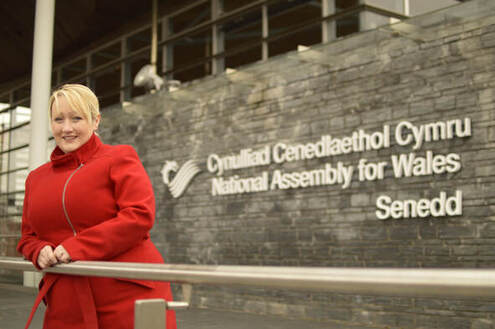|
Rebecca Evans AM joins the Charity Commission, the Fundraising Regulator, Action Fraud and Trading Standards to encourage people to give to genuine registered charities as people in Gower respond with generosity in the current crisis.
It comes as regulators receive reports of scammers targeting vulnerable people, for example by posing as fundraisers collecting money for charity, who are diverting vital funds away from genuine causes. Rebecca Evans, AM for Gower is urging people to help ensure their donations reach genuine charities responding to the COVID-19 crisis. Mrs Evans said “Charities, including those working in Gower are already forming a core part of the nation’s response to the pandemic. “I would encourage people to support registered charities, at a time when many face an increased demand for their services, such as the National Emergencies Trust (NET) national coronavirus fundraising appeal.” The appeal was launched to raise funds for local charities including in Gower responding to the pandemic. Many local and national charities are dealing with the pandemic and continuing to do important work throughout the country to support vulnerable people and communities. By giving to a registered, regulated charity, people in Gower can have assurance that their funds will be accounted for in line with charity law. Action Fraud and Trading Standards have received reports of fraudsters seeking to exploit the pandemic by targeting vulnerable people, for example posing as charity volunteers offering to help with shopping, offering fake virus testing, or claiming to be raising funds for charity. There are simple ways of making sure you give safely to registered charities. Always check the charity’s name and registration number at gov.uk/checkcharity. Most charities with an annual income of £5,000 or more must be registered. Ensure the charity is genuine before giving any financial information. Also, be vigilant about unsolicited emails from charities you have never heard of and be careful when responding to emails or clicking on links within them. The public is also advised to ignore requests to donate through a money transfer company. Rebecca Evans added: “I have been heartened and encouraged to witness the generous community spirit that people across Gower have demonstrated since this crisis began. I would like to thank all those who have been looking out for vulnerable neighbours and friends. I also want to encourage those across Gower who are able to donate, to support registered charities helping to relieve those most in need, and to be vigilant against ‘charity’ scams. Together, we can look after the people in Gower who need our help, and ensure this terrible situation strengthens our community.” Baroness Tina Stowell, Chair of the Charity Commission, said: “British people have a proud tradition of charitable giving and generosity, and this pandemic is already giving rise to that spirit of charity and community that brings people together. We want to ensure that people do so safely and in the most effective way possible so that people in need get help. We encourage everyone wanting to donate money to follow our simple steps to check that they are donating to a registered charity. By giving to a registered charity, the public can have assurance that their funds are regulated by the Charity Commission. Lord Toby Harris, Chair of the Fundraising Regulator, said: “Charities are a lifeline to many local communities and play a vital role in supporting people across the UK, particularly at a time of national crisis. In what is the most significant public health emergency in generations, we encourage the public to continue to give generously throughout these difficult times. Unfortunately, we have heard of some individuals who have used the Coronavirus outbreak as a means of defrauding the public, so we urge you to check that an organisation is legitimate before you give to it. For more helpful advice on giving to charity safely, please read our guidance here.” Louise Baxter, Head of the National Trading Standards Scams Team, said: “As people stay indoors to prevent the spread of COVID-19, criminals are preying on people in vulnerable situations who are isolated and living alone. The criminals often claim to represent charities to help them appear legitimate before taking the victim’s money. There are genuine charities providing support, so consumers should be vigilant and ask for ID from anyone claiming to represent a charity. “There’s never been a more important time for neighbours to look out for each other – particularly as we self-isolate – which is why we’re encouraging communities to prevent scams in their local area by using the free Friends Against Scams resources. Our online courses will help you spot a potential scam, identify people at risk and help you protect local residents from falling victims to scams. We’re urging communities to protect each other from scams and encourage people to share the latest advice with families, friends and neighbours.” Comments are closed.
|
|

